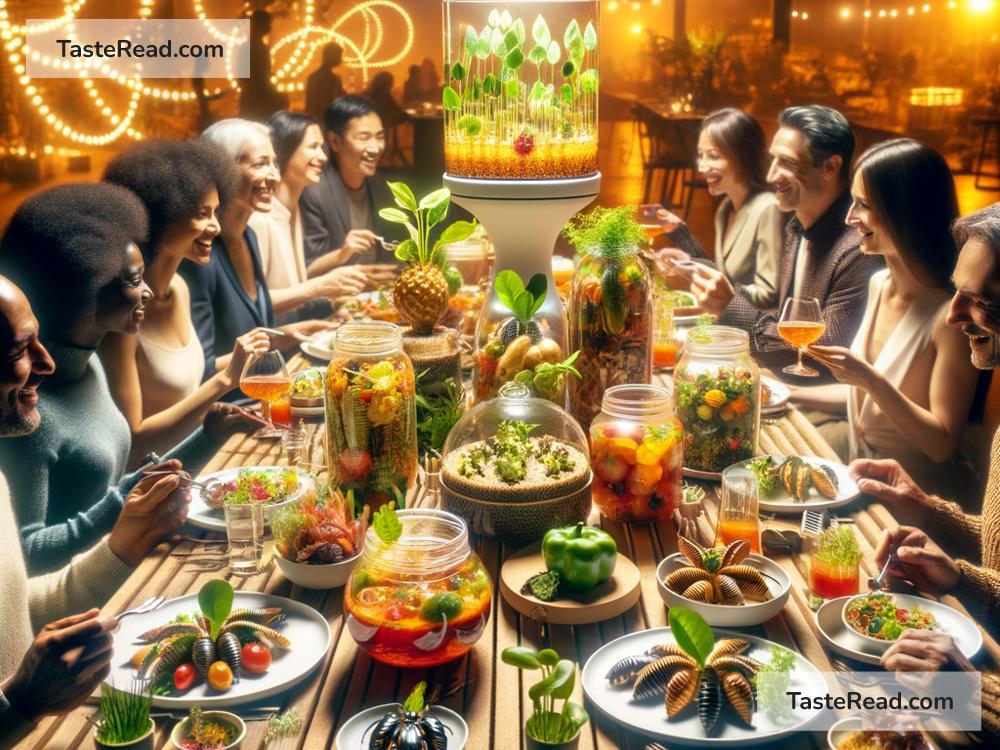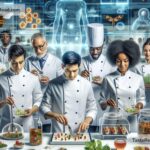The Future of Food and Inclusive Global Collaboration
Food is essential for life. It gives us energy, keeps us healthy, and connects us to culture and tradition. But the way we produce, distribute, and consume food is changing. Climate change, growing populations, and new technologies are forcing us to rethink how we can feed everyone on the planet while protecting the environment. To create a better future for food, we need global collaboration that is inclusive of all perspectives.
Challenges Facing the Food System
Feeding billions of people in a sustainable way is not easy. Today, the food system faces many challenges:
-
Climate Change: Rising temperatures, unpredictable weather, and natural disasters make it harder to grow crops and raise livestock. These changes hurt farmers, especially those in poor regions, and disrupt food supplies.
-
Population Growth: The global population is expected to reach nearly 10 billion by 2050. Producing enough food for everyone could put a heavy strain on land, water, and resources.
-
Food Waste: About one-third of the food we produce is wasted. This happens at every stage of the supply chain—from farms to restaurants to homes. Food waste not only wastes resources but also contributes to greenhouse gas emissions.
-
Inequity: Millions of people go hungry every day, while others have access to more food than they need. Unequal access to food is a major problem. Cultures, economies, and politics all play a role in creating this imbalance.
-
Environmental Impact: Farming, fishing, and food production can harm ecosystems. Overuse of chemicals, deforestation, and overfishing are damaging the planet’s natural resources.
To address these challenges, the future of food must be innovative, sustainable, and fair for everyone.
The Role of Technology and Innovation
Technology is already improving the way we grow, process, and distribute food. In the future, innovation will play an even bigger role in solving food challenges:
-
Precision Agriculture: Tools like GPS, sensors, and drones allow farmers to use water, fertilizers, and pesticides more efficiently. This reduces waste and helps crops grow better.
-
Vertical Farming: Instead of using large fields, vertical farming grows food in stacked layers inside buildings. This method saves space, uses less water, and can produce food in urban areas.
-
Alternative Proteins: Plant-based meats, lab-grown meat, and insect-based foods are becoming more popular. These options use fewer resources than traditional livestock farming and could play a major role in feeding the world.
-
Artificial Intelligence (AI): AI can analyze data to predict crop yields, identify pests, and improve supply chains. This can make food production smarter and more effective.
-
Food Preservation: New ways to preserve food, like advanced packaging and refrigeration, will help reduce food waste and keep food fresh for longer.
Technology alone is not enough. We must also work together as a global community to ensure these innovations benefit everyone, not just wealthy countries.
Inclusive Global Collaboration
The future of food depends on cooperation. Food is not only about science and technology; it is also about people, culture, and fairness. Inclusive global collaboration means involving every group, country, and voice in decisions about the food system. Here’s how we can make this happen:
-
Shared Knowledge: Scientists, farmers, policymakers, and businesses must share ideas and discoveries. Open collaboration helps everyone work toward common goals, like reducing hunger and protecting the planet.
-
Support for Small Farmers: Small-scale farmers, especially in developing countries, grow much of the world’s food. They need access to resources, training, and technology to improve their practices and compete fairly in global markets.
-
Respect for Cultures: Food is deeply connected to culture. Global solutions must respect local traditions and food preferences. Standardizing food practices without considering cultural diversity can create resistance and harm communities.
-
Fair Policies: Governments and international organizations should create policies that ensure food production, prices, and trade benefit all countries—not just a few wealthy ones. Fair trade agreements and investments in agriculture can lift up struggling regions.
-
Community Involvement: Regular people play a huge role in shaping food systems. By reducing food waste, choosing sustainable products, and supporting local farmers, communities can become part of the solution.
Inclusive collaboration also involves listening to voices that have historically been ignored. Women, indigenous people, and marginalized communities often have valuable knowledge about farming and resource management. Supporting their leadership and innovation is key to creating equitable food systems.
Imagining a Better Future
What might the future of food look like? Imagine cities where fresh vegetables grow in skyscrapers, supermarkets selling climate-friendly products, and farmers using robots to plant and harvest crops. Imagine a world where everyone has enough to eat, and food production does not harm the planet.
To achieve this vision, we must move forward together. Every country, individual, and organization has a role to play in creating a sustainable and fair food system. Collaboration is the bridge that connects us.
The future of food is filled with possibility. If we use technology wisely, respect diversity, and work together inclusively, we can meet the challenges ahead. Feeding the world is not just a scientific and economic task—it is a human responsibility. Let’s build a future where food nourishes not only our bodies but also our communities and the planet we all share.

